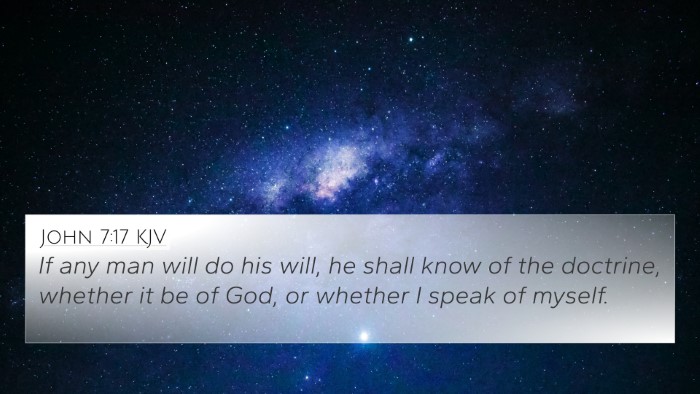Understanding Psalms 25:12
Psalms 25:12 is a verse that invites believers to engage in a deeper understanding of God's guidance and the relationship between the righteous and their Creator. This verse states, “Who is the man that fears the Lord? Him shall he teach in the way that he chooses.” (ESV)
Meaning of Psalms 25:12
The verse presents a profound inquiry into the nature of reverence towards God. Through the insights from public domain commentaries, we can explore the layers of this passage.
Matthew Henry's Commentary
Henry emphasizes the significance of the fear of the Lord, suggesting that it is characterized by a deep respect and awe for God. This fear is not only a recognition of God's power and authority but also an acknowledgment of His goodness and mercy. Those who fear God are promised guidance and instruction, as God takes personal interest in leading them on the righteous path. This resonates with the notion that divine instruction comes to those who are humble and open to learning.
Albert Barnes' Commentary
Barnes points out that the "man who fears the Lord" symbolizes a true believer. He explains that fear in this context is not a paralyzing dread but a reverential awe that leads to a willingness to obey God's commands. Barnes elaborates that God’s discipline and leading are more accessible to those who are mindful of His will. This guidance aligns with the broader biblical theme of rewarding faithfulness and good character.
Adam Clarke's Commentary
Clarke interprets the question posed in the verse as an invitation for self-reflection. He underscores the premise that God reveals His truth to those who seek it earnestly. Clarke argues that this verse encourages believers to pursue a transformation in their lives that aligns with God's desires. His commentary stresses the importance of a personal relationship with God, wherein the believer actively seeks His guidance in their moral and spiritual journey.
Thematic Connections and Cross-References
To appreciate the full implications of Psalms 25:12, it is beneficial to consider its connections to other Scripture passages. Here are some key Bible verse cross-references that enhance the understanding of this verse:
- Proverbs 1:7 - "The fear of the Lord is the beginning of knowledge; fools despise wisdom and instruction."
- Isaiah 48:17 - "Thus says the Lord, your Redeemer, the Holy One of Israel: I am the Lord your God, who teaches you to profit, who leads you in the way you should go."
- James 1:5 - "If any of you lacks wisdom, let him ask of God, who gives to all liberally and without reproach, and it will be given to him."
- Psalm 32:8 - "I will instruct you and teach you in the way you should go; I will guide you with My eye."
- Proverbs 3:5-6 - "Trust in the Lord with all your heart, and lean not on your own understanding; in all your ways acknowledge Him, and He shall direct your paths."
- John 14:15 - "If you love Me, keep My commandments."
- Acts 13:22 - "And when He had removed him, He raised up for them David as king, to whom also He gave testimony and said, 'I have found David the son of Jesse, a man after My own heart, who will do all My will.'
Applying the Insights
In light of the combined insights from these commentaries and references, we can draw several practical applications from Psalms 25:12:
- Fear of the Lord: Develop a deeper reverence for God, understanding that this is the foundation of wisdom and learning.
- Seek Guidance: Actively seek God's direction in your life, demonstrating trust and openness to His will.
- Prayer for Wisdom: Regularly ask God for wisdom, knowing that He generously gives to those who earnestly seek it.
- Obedience to His Commandments: Express love for God through obedience, knowing that following His commands leads to a fulfilled life.
- The Importance of Self-Reflection: Regularly reflect on your relationship with God and your willingness to follow His guidance.
Conclusion
Psalms 25:12 serves as a powerful reminder to the faithful about the importance of reverence, obedience, and the pursuit of wisdom. It encourages believers to reflect on their relationship with God and assures them of divine guidance as they navigate life. As we seek to understand this verse, we can connect it to broader themes and teachings within the Bible, enriching our faith and understanding through comprehensive Bible cross-reference studies.





















